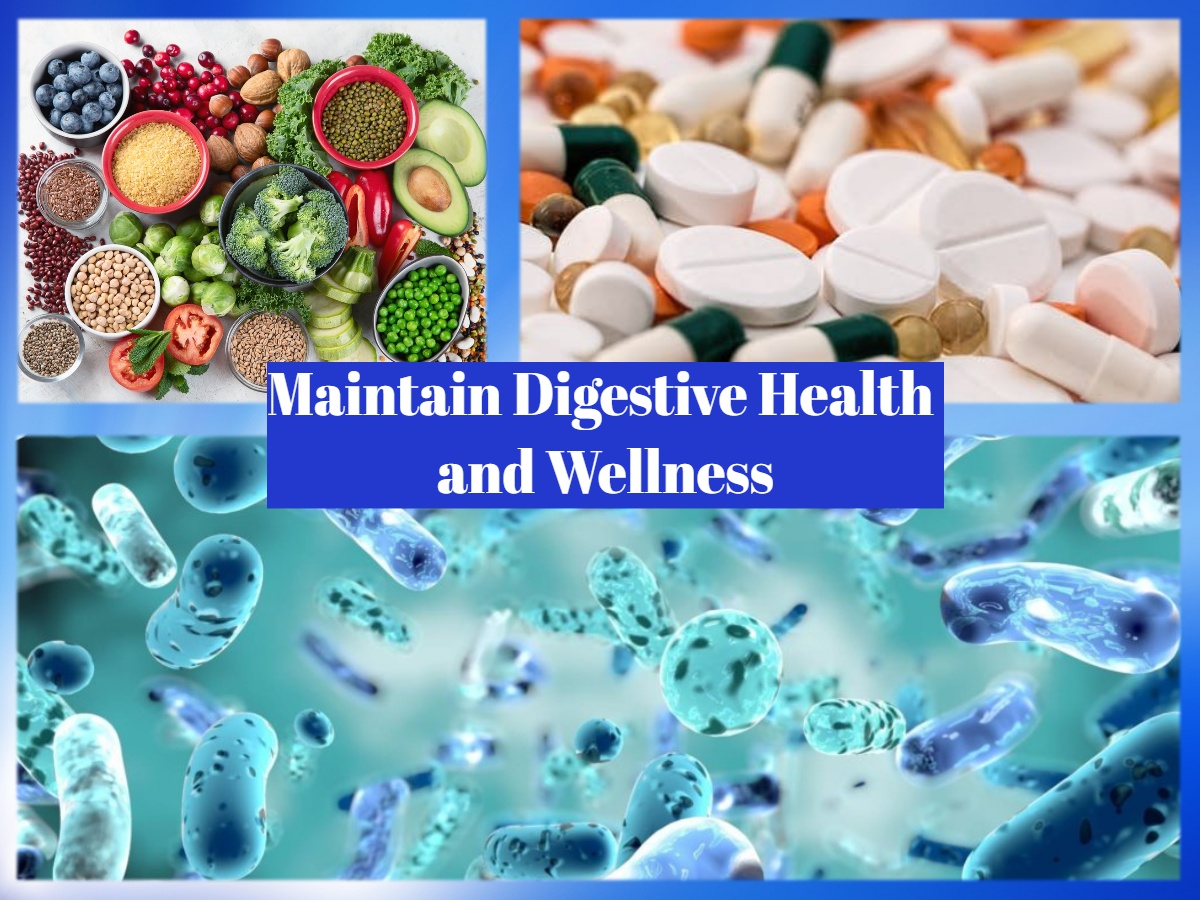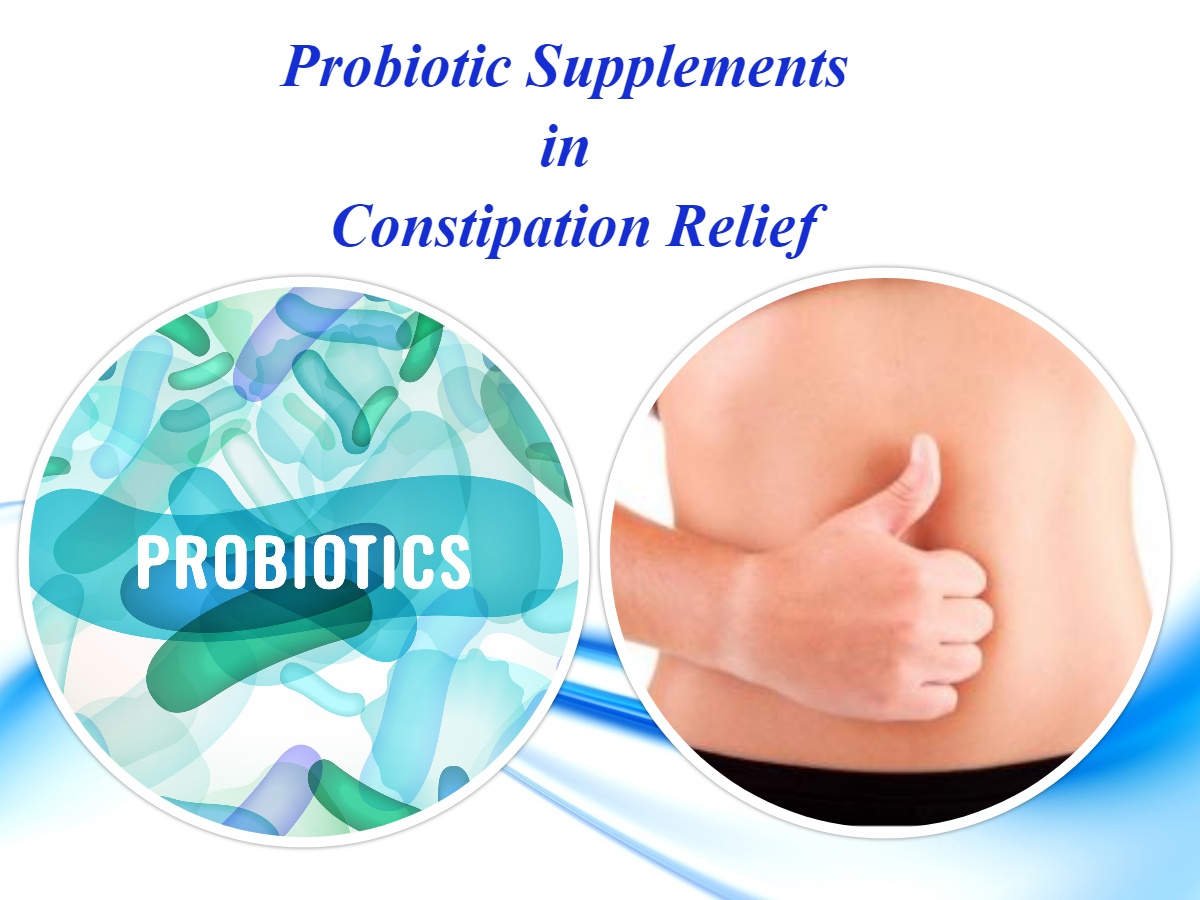Constipation is a common gastrointestinal issue that affects millions of people worldwide. It can be uncomfortable, disruptive, and even detrimental to overall health if left untreated. While there are various remedies available, one increasingly popular solution is probiotics. In this article, we’ll delve into the world of probiotics and how they can help decode the constipation code.
Table of Contents
Introduction to Probiotics
What are probiotics?
Probiotics are live microorganisms that provide health benefits when consumed in adequate amounts. They are often referred to as “good” or “friendly” bacteria because of their positive effects on the body, particularly the digestive system.
Importance of gut health
The gut microbiome plays a crucial role in digestion, nutrient absorption, and immune function. Maintaining a healthy balance of gut bacteria is essential for overall well-being.
Understanding Constipation
Constipation is a common gastrointestinal problem characterized by infrequent bowel movements or difficulty passing stool. It can vary in severity, ranging from mild discomfort to chronic constipation that significantly impacts quality of life.
Several factors can contribute to constipation, including:
- Low-fiber diet: A diet low in fiber can lead to hard, dry stool that is difficult to pass. Fiber helps add bulk to stool and promotes regular bowel movements.
- Dehydration: Inadequate fluid intake can result in dry stool, making it harder to pass through the digestive tract. Drinking plenty of water is essential for maintaining proper hydration and softening stool.
- Lack of physical activity: Regular physical activity helps stimulate bowel movements by promoting muscle contractions in the intestines. Sedentary lifestyles can contribute to sluggish digestion and constipation.
- Certain medications: Some medications, such as certain pain relievers, antidepressants, and iron supplements, can cause constipation as a side effect. It’s essential to talk to your healthcare provider if you suspect medication may be contributing to your constipation.
- Underlying medical conditions: Chronic constipation may be a symptom of an underlying medical condition, such as irritable bowel syndrome (IBS), thyroid disorders, or neurological disorders.
Probiotics and Gut Health
How probiotics work in the gut
Probiotics work by colonizing the intestines and promoting the growth of beneficial bacteria. They help restore and maintain a balanced microbiome, which is essential for optimal digestion and overall health. Additionally, probiotics can inhibit the growth of harmful bacteria and pathogens, helping to prevent infections and digestive disorders.
Benefits of probiotics for digestion
Research suggests that probiotics can provide several benefits for digestive health, including:
- Improved bowel regularity: Probiotics may help regulate bowel movements and alleviate symptoms of constipation or diarrhea.
- Enhanced nutrient absorption: By promoting a healthy gut microbiome, probiotics can improve the absorption of essential nutrients, such as vitamins and minerals.
- Reduced inflammation: Probiotics have anti-inflammatory properties that can help alleviate symptoms of inflammatory bowel diseases, such as Crohn’s disease and ulcerative colitis.
- Support for digestive disorders: Probiotics may be beneficial for individuals with digestive disorders, such as irritable bowel syndrome (IBS) or gastroesophageal reflux disease (GERD), by reducing symptoms and improving overall gut health.
Research on Probiotics and Constipation
Studies supporting probiotics for constipation relief
Several clinical trials have demonstrated the effectiveness of probiotics in improving bowel habits and alleviating constipation symptoms. These studies have highlighted the following key findings:
- Increased stool frequency: Probiotic supplementation has been associated with an increase in the frequency of bowel movements, making it easier to pass stool.
- Improved stool consistency: Probiotics can help regulate stool consistency, making it softer and easier to pass, thus reducing the discomfort associated with constipation.
- Reduced transit time: Probiotics may help accelerate intestinal transit time, allowing food to move more efficiently through the digestive tract and reducing the likelihood of constipation.
Types of probiotics effective for constipation
While numerous probiotic strains have been studied for their effects on constipation, certain strains have shown particularly promising results. These include:
- Bifidobacterium lactis: This probiotic strain has been shown to improve stool frequency and consistency in individuals with constipation.
- Lactobacillus casei: Research suggests that supplementation with Lactobacillus casei may help alleviate constipation symptoms and promote regular bowel movements.
- Saccharomyces boulardii: Although technically a yeast probiotic, Saccharomyces boulardii has been found to be effective in relieving constipation and restoring gut balance.
Choosing the Right Probiotic
Factors to consider
- Strain specificity: Different probiotic strains may have varying effects on gut health and constipation relief. Look for probiotic supplements containing strains that have been specifically studied and proven effective for relieving constipation, such as Bifidobacterium lactis or Lactobacillus casei.
- Dosage: Pay attention to the dosage of probiotics in each serving of the supplement. The efficacy of probiotics is often dose-dependent, so higher doses may be more effective in alleviating constipation symptoms.
- Formulation: Probiotics are available in various forms, including capsules, tablets, powders, and liquids. Choose a formulation that is convenient and easy for you to incorporate into your daily routine.
- Quality: Opt for probiotic supplements from reputable brands that adhere to strict quality control standards. Look for products that are third-party tested and certified to ensure potency, purity, and safety.
- Additional ingredients: Some probiotic supplements may contain additional ingredients, such as prebiotics or digestive enzymes, which can further support gut health and digestion. Consider whether these additional ingredients align with your health goals and dietary preferences.
Recommended probiotic strains for constipation
Certain probiotic strains have been extensively studied and shown to be effective in relieving constipation. When choosing a probiotic supplement, look for strains such as:
- Bifidobacterium lactis DN-173 010: This strain has been shown to improve stool frequency and consistency in individuals with constipation.
- Lactobacillus rhamnosus GG: Research suggests that supplementation with Lactobacillus rhamnosus GG may help alleviate constipation symptoms and promote regular bowel movements.
Incorporating Probiotics into Your Routine
Dietary sources of probiotics
One of the easiest ways to incorporate probiotics into your diet is by consuming probiotic-rich foods. These include:
- Yogurt: Yogurt is perhaps the most well-known source of probiotics. Look for varieties that contain live and active cultures, such as Greek yogurt or kefir, which can provide a diverse range of beneficial bacteria.
- Kefir: Similar to yogurt, kefir is a fermented milk drink that is rich in probiotics. It typically contains a broader range of bacterial strains than yogurt and can be enjoyed on its own or added to smoothies and recipes.
- Sauerkraut: Sauerkraut is made from fermented cabbage and is a potent source of probiotics. It’s rich in beneficial bacteria and can be enjoyed as a side dish or added to salads and sandwiches.
- Kimchi: Kimchi is a traditional Korean dish made from fermented vegetables, such as cabbage and radishes. It’s packed with probiotics and adds a flavorful kick to meals.
- Kombucha: Kombucha is a fermented tea beverage that contains probiotic-rich cultures. It’s available in a variety of flavors and can be enjoyed as a refreshing drink.
Supplement options
If you prefer a more convenient option or have dietary restrictions that limit your intake of probiotic-rich foods, probiotic supplements are an excellent alternative. These supplements come in various forms, including capsules, tablets, powders, and liquids, and contain concentrated doses of beneficial bacteria.
When choosing a probiotic supplement, opt for a high-quality product from a reputable manufacturer. Look for supplements that contain specific probiotic strains known to be effective for constipation relief, such as Bifidobacterium lactis or Lactobacillus casei.
Incorporating probiotics into meals and snacks
In addition to consuming probiotic-rich foods and supplements, you can also incorporate probiotics into your meals and snacks. Try adding yogurt or kefir to smoothies, mixing sauerkraut or kimchi into salads or stir-fries, or enjoying a glass of kombucha with your meals.
By incorporating probiotics into your daily routine through dietary sources and supplements, you can support a healthy balance of gut bacteria and promote regular bowel movements. In the next sections, we’ll explore additional lifestyle changes and tips for maximizing the benefits of probiotics for constipation relief.
Probiotics and Lifestyle Changes
Importance of diet and exercise
A balanced diet and regular physical activity are essential components of a healthy lifestyle and can complement the effects of probiotics on gut health. Here are some dietary and exercise-related considerations:
- Fiber-rich foods: Incorporate plenty of fiber-rich foods into your diet, such as fruits, vegetables, whole grains, and legumes. Fiber helps promote regular bowel movements and supports digestive health.
- Hydration: Drink an adequate amount of water throughout the day to stay hydrated. Proper hydration is essential for maintaining soft, easy-to-pass stool and preventing constipation.
- Regular exercise: Engage in regular physical activity, such as brisk walking, jogging, cycling, or swimming. Exercise helps stimulate bowel movements and promotes healthy digestion.
Stress management
Stress can have a significant impact on digestive health and may exacerbate symptoms of constipation. Incorporating stress-reducing techniques into your daily routine can help support gut health and complement the effects of probiotics. Consider the following stress management strategies:
- Mindfulness and relaxation: Practice mindfulness meditation, deep breathing exercises, or progressive muscle relaxation to reduce stress levels and promote relaxation.
- Yoga and tai chi: Engage in gentle, low-impact exercises like yoga or tai chi, which can help calm the mind and body and alleviate stress-related symptoms.
- Healthy coping mechanisms: Develop healthy coping mechanisms for managing stress, such as spending time in nature, pursuing hobbies and interests, or seeking social support from friends and family.
Consistency and patience
Consistency is key when it comes to incorporating probiotics and lifestyle changes into your routine. It may take some time for probiotics to exert their effects and for lifestyle modifications to yield noticeable improvements in digestive health. Be patient and persistent in your efforts, and give your body time to adjust to the changes.
Tips for Maximum Benefits
Proper dosage and timing
- Follow instructions: Take probiotics as directed by the manufacturer or your healthcare provider. Follow the recommended dosage and frequency to maximize their effectiveness.
- Consistency is key: Incorporate probiotics into your daily routine consistently. Consistent use can help maintain a healthy balance of gut bacteria and support regular bowel movements over time.
- Take with food: Consuming probiotics with meals can enhance their survival through the digestive tract and improve their effectiveness. Consider taking probiotics with a meal or snack for optimal results.
Monitor progress
- Keep a journal: Track your symptoms and bowel habits while taking probiotics. Note any changes or improvements you experience over time, and adjust your probiotic regimen accordingly.
- Be patient: It may take some time to notice significant improvements in digestive health. Be patient and consistent in your probiotic use, and give your body time to respond to the treatment.
Lifestyle adjustments
- Maintain a healthy diet: In addition to probiotics, focus on consuming a balanced diet rich in fiber, fruits, vegetables, and whole grains. A healthy diet can support overall digestive health and complement the effects of probiotics.
- Stay hydrated: Drink plenty of water throughout the day to keep your digestive system functioning smoothly. Adequate hydration is essential for softening stool and preventing constipation.
Consult a healthcare professional
- Seek medical advice: If you experience persistent or severe constipation despite probiotic use, consult a healthcare professional for further evaluation and management. They can help determine the underlying cause of your symptoms and recommend appropriate treatment options.
- Discuss interactions: Inform your healthcare provider about any medications or supplements you’re taking, including probiotics. Some medications may interact with probiotics, affecting their efficacy or safety.
Side Effects and Precautions
Potential adverse effects
- Gastrointestinal symptoms: Some people may experience mild gastrointestinal symptoms when first starting probiotics, such as gas, bloating, abdominal discomfort, or diarrhea. These symptoms are usually temporary and resolve on their own as the body adjusts to the probiotics.
- Allergic reactions: In rare cases, individuals may be allergic to specific probiotic strains or ingredients in probiotic supplements. If you experience symptoms of an allergic reaction, such as itching, swelling, rash, or difficulty breathing, discontinue use and seek medical attention immediately.
Who should avoid probiotics
- Immunocompromised individuals: People with weakened immune systems, such as those with HIV/AIDS, cancer undergoing chemotherapy, or organ transplant recipients, should exercise caution when using probiotics. Probiotic supplements may pose a risk of infection in these individuals, so consult a healthcare professional before starting probiotics.
- Certain medical conditions: Individuals with certain medical conditions, such as severe acute pancreatitis, short bowel syndrome, or intestinal damage, should avoid probiotics or use them under medical supervision. Probiotics may exacerbate symptoms or complicate underlying health conditions in these cases.
- Allergies: If you have known allergies or sensitivities to specific probiotic strains or ingredients, check the label carefully before using probiotic supplements. Avoid products that contain allergens or consult a healthcare professional for alternative options.
Pregnancy and breastfeeding
- Pregnant women: While probiotics are generally considered safe for pregnant women, it’s essential to consult a healthcare provider before using probiotics during pregnancy. Some probiotic strains may be beneficial for maternal and fetal health, but individual circumstances may vary.
- Breastfeeding: Probiotics are typically safe for breastfeeding mothers and their infants. However, it’s advisable to consult a healthcare provider before using probiotics while breastfeeding to ensure safety and efficacy.
Consult a healthcare professional
- Medical advice: If you have any underlying medical conditions, concerns, or questions about probiotics, consult a healthcare professional before starting probiotic supplementation. They can provide personalized recommendations based on your individual health status and medical history.
- Monitoring: If you experience persistent or severe side effects while using probiotics, discontinue use and consult a healthcare professional for further evaluation and management. It’s essential to monitor your symptoms and seek appropriate medical care if needed.
By being aware of potential side effects and taking necessary precautions, you can safely incorporate probiotics into your routine and enjoy their potential health benefits. Remember to consult a healthcare professional if you have any concerns or questions about probiotic use, particularly if you have underlying health conditions or are pregnant or breastfeeding.
Consulting a Healthcare Professional
When to seek medical advice
- Pre-existing medical conditions: If you have underlying medical conditions such as gastrointestinal disorders, immune system disorders, or allergies, consult a healthcare professional before starting probiotics. They can help determine if probiotics are appropriate for you and recommend specific strains or formulations tailored to your needs.
- Persistent symptoms: If you experience persistent or severe symptoms of constipation, digestive discomfort, or other gastrointestinal issues despite probiotic use, consult a healthcare professional for further evaluation and management. They can help identify the underlying cause of your symptoms and recommend appropriate treatment options.
- Medication interactions: If you’re taking medications or supplements, discuss potential interactions with probiotics with your healthcare provider. Some medications may interact with probiotics, affecting their efficacy or safety. Your healthcare provider can advise you on the best course of action and adjust your treatment plan if necessary.
Interactions with medications
- Antibiotics: If you’re taking antibiotics, discuss probiotic supplementation with your healthcare provider. Antibiotics can disrupt the balance of gut bacteria, and probiotics may help restore gut health during and after antibiotic treatment. Your healthcare provider can recommend the appropriate timing and dosage of probiotics to complement your antibiotic therapy.
- Immunosuppressants: If you’re taking immunosuppressant medications, such as corticosteroids or biologic agents, consult your healthcare provider before using probiotics. Probiotic supplementation may affect immune function and interact with immunosuppressant drugs, so it’s essential to seek medical advice to ensure safety and efficacy.
Pregnancy and breastfeeding
- Pregnant women: If you’re pregnant or planning to become pregnant, discuss probiotic use with your healthcare provider. While probiotics are generally considered safe during pregnancy, individual circumstances may vary, and your healthcare provider can offer personalized recommendations based on your specific needs and concerns.
- Breastfeeding: If you’re breastfeeding, consult your healthcare provider before using probiotics. Probiotics are typically safe for breastfeeding mothers and their infants, but it’s essential to discuss potential benefits and risks with your healthcare provider to make an informed decision.
Monitoring and follow-up
- Symptom monitoring: Keep track of any changes or improvements in your symptoms while using probiotics. If you notice any unusual or persistent symptoms, discontinue probiotic use and consult your healthcare provider for further evaluation.
- Follow-up appointments: Schedule regular follow-up appointments with your healthcare provider to monitor your progress and discuss any concerns or questions you may have about probiotic use. Your healthcare provider can adjust your treatment plan as needed and provide ongoing support and guidance.
By consulting a healthcare professional before starting probiotics and discussing any concerns or questions you may have, you can ensure safe and effective use of probiotics to support your digestive health and overall well-being. Remember to follow your healthcare provider’s recommendations and seek medical advice if you experience any adverse effects or persistent symptoms while using probiotics.
Case Studies and Success Stories
Case Study 1: Jane’s Journey to Relief
Jane, a 45-year-old woman, had been struggling with chronic constipation for years. Despite trying various medications and dietary modifications, she found little relief from her symptoms. Frustrated and discouraged, Jane decided to try probiotics on the recommendation of her healthcare provider.
After incorporating a probiotic supplement containing Bifidobacterium lactis into her daily routine, Jane noticed gradual improvements in her bowel habits. Within a few weeks, she experienced fewer episodes of constipation and more regular bowel movements. Jane’s symptoms continued to improve over time, and she regained confidence in her digestive health.
Case Study 2: Tom’s Triumph Over Digestive Distress
Tom, a 35-year-old man, had been experiencing frequent bloating, gas, and irregular bowel movements for as long as he could remember. Despite making dietary changes and trying over-the-counter remedies, his symptoms persisted. Desperate for relief, Tom decided to try probiotics after reading about their potential benefits online.
After several weeks of consistent probiotic use, Tom began to notice significant improvements in his digestive symptoms. His bloating and gas decreased, and his bowel movements became more regular and comfortable. Encouraged by his progress, Tom continued to take probiotics as part of his daily routine and enjoyed long-term relief from digestive distress.
Success Story 1: Sarah’s Story of Transformation
Sarah, a 30-year-old woman, had struggled with digestive issues since childhood. She experienced frequent bouts of constipation and abdominal discomfort, which often interfered with her daily life. Determined to find a solution, Sarah began researching natural remedies for digestive health and discovered the potential benefits of probiotics.
After incorporating probiotic-rich foods such as yogurt, kefir, and sauerkraut into her diet, Sarah noticed gradual improvements in her digestive symptoms. Her bowel movements became more regular, and she experienced less bloating and discomfort. Inspired by her success, Sarah continued to prioritize probiotics in her diet and enjoyed newfound digestive wellness.
Success Story 2: Jack’s Journey to Gut Health
Jack, a 50-year-old man, had been dealing with constipation and digestive discomfort for years. He had tried various medications and dietary changes without success and was growing increasingly frustrated with his condition. Determined to find a solution, Jack consulted a healthcare professional who recommended probiotics as a natural approach to improving gut health.
After incorporating a high-quality probiotic supplement into his daily routine, Jack experienced significant improvements in his digestive symptoms. His bowel movements became more regular, and he noticed less bloating and discomfort after meals. Delighted with his progress, Jack continued to take probiotics and enjoyed renewed confidence in his digestive health.
Conclusion
In conclusion, probiotics offer a promising solution for alleviating constipation and promoting overall digestive health. By restoring the balance of gut bacteria and supporting regular bowel movements, probiotics can help decode the constipation code. However, it’s essential to choose the right probiotic strain, incorporate healthy lifestyle habits, and seek medical advice if needed. With the right approach, you can achieve optimal gastrointestinal well-being and enjoy relief from constipation.
Frequently Asked Questions (FAQs)
- Are probiotics safe for everyone?
- While probiotics are generally safe for most people, individuals with certain medical conditions or compromised immune systems should consult their healthcare provider before taking probiotics.
- How long does it take to see results from probiotics?
- The timeframe for experiencing noticeable improvements may vary depending on individual factors and the specific probiotic strain. It’s important to be patient and consistent with probiotic use.
- Can probiotics cause side effects?
- Some people may experience mild side effects such as gas, bloating, or diarrhea when first starting probiotics. These symptoms typically resolve on their own as the body adjusts.
- Can probiotics help with other digestive issues besides constipation?
- Yes, probiotics have been studied for their effects on various digestive disorders, including irritable bowel syndrome (IBS), inflammatory bowel disease (IBD), and diarrhea.
- Are there any dietary restrictions when taking probiotics?
- While there are no strict dietary restrictions when taking probiotics, it’s essential to maintain a balanced diet rich in fiber and nutrients to support overall digestive health.









